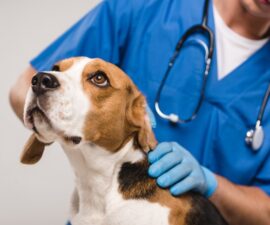You may be concerned if your pet needs veterinary surgery. Your pet companion is part of their household, and you want to keep them as happy as possible. It would help if you did what’s best to set your dog up for success, whether it’s as easy as having them spayed or as complex as TPLO surgery. Luckily, you can take some easy steps to make your pet company as happy as possible with a piece of little knowledge.
ONE WEEK BEFORE THE SURGERY
It could be beneficial if you began training for your pet’s operation one week in advance. Be sure that your pet company has all their vaccines current and that you are aware of the ones available for surgery, most frequently for rabies, Bordetella, distemper, and parvo. Any vaccines that your pet doesn’t have must be provided at least five days before surgery to guarantee it’s adequately covered. Additionally, please make certain you’ve got the time off work required to transport your pet to our veterinary clinic and care for them afterward.
THE EVENING BEFORE SURGERY
When prepared for surgery, be sure that you ask the doctor if you’re able to give your pet any medications it usually takes. Even though it can be appropriate for your dog to keep on taking the medication sometimes, it might be critical to have an empty stomach during the operation others.
You may even wish to wash the dog the evening before the operation, as you’ll not be able to brush your pet for several days after the operation, so if your dog wants nail trimming, ear cleaning, or a wash, now’s the time to take action. If you have trouble brushing your pet normally, you could consider getting this service done while your dog is sedated. If your dog doesn’t want a bath, provide them great grooming until you wash them.
Please do not take your dog on exhausting walks or allow him to play roughly the day before surgery. This might cause their body to be sore on the day of operation, and they don’t want more soreness in addition to the surgery’s pain.
If your pet has a particular diet before the operation, make sure you have the food available, and that means you aren’t scrambling around post-surgery, looking for a way to feed your pet.
Look at cleaning the dog’s bedding too. This means that their sleeping environment is as sterile as you can to decrease the probability of pollution, and they are as secure as possible throughout their rehab.
If your dog’s mobility must be limited during rehab, strategy an enclosed area of your house with a crate now. This removes the requirement for you to rush around after operation to establish a place for your furry friend.
Many surgeries enable your pet to fast before the surgery. This is when your dog gets nauseous from the anesthesia, it can vomit through operation, increasing the probability of your dog choking. Eliminate your pet’s water and food the evening before surgery, and make sure there is no way for them to feed or drink until midnight on the day of surgery. Whether your dog eats before surgery, notify your veterinarian so that they can continue to keep a lookout for vomiting.
Finally, be certain that they are well-rested prior to operation. If both you and your pet have enough sleep, surgery will be even less painful for everyone.
THE DAY OF YOUR DOG’S SURGERY
Again, prior to the surgery, don’t give the dog something to eat or drink. Take them to a brief walk to encourage them to remove any elements in the digestive tract. Also, leave lots of time to get to our veterinary clinic to make sure your pet’s surgery is as stress-free as possible. You’ll be called when your puppy awakens from surgery, so maintain your cell nearby. Don’t make a massive deal out of saying farewell to a fuzzy friend, as an awkward goodbye would frighten and confuse your pet more. You want your furry companion to be relaxed during the procedure, so don’t agitate them with a dramatic farewell.
IMMEDIATELY AFTER SURGERY
When you walk your dog home after surgery, make sure to follow the veterinarian’s orders carefully. Don’t let them dance or jump around too much, so the incision does not tear. Keep an eye out for any scratching or licking of the stitches, as well as any changes in your dog’s character or appetite. If you see something out of the normal, please contact our veterinary clinic for assistance.
You may be worried about your pet’s operation, but the recovery process will go much more smoothly if you are prepared. Ask Veterinary Medical and Surgical Group about Vet neurology Ventura for more information about our pet surgery services by clicking on this link.











